The Epic of Eternal Dilemmas and Shifting Morals Mahabharat
Prem Kamde | Sun, 11 May 2025
The Mahabharat isn't just a tale of gods and warriors—it's a timeless reflection of human conscience, where dharma (duty) clashes with desire, and heroes are flawed by design. Dive into the moral chaos of this epic, where right and wrong often trade places, and ethical dilemmas redefine justice, loyalty, and truth. Through every battle and betrayal, Mahabharat forces us to question: What is righteousness when everyone believes they're right?
( Image credit : Freepik )
Photo:
The Mahabharat is not merely an epic of war, lineage, or divine intervention—it is a timeless mirror reflecting the deepest moral struggles of humankind. Composed thousands of years ago, this ancient Indian text remains astoundingly relevant today, not because of its battles or mysticism, but due to its unflinching exploration of ethical dilemmas, moral complexities, and the fragile line between right and wrong.
Unlike tales that divide the world into black and white, the Mahabharat lives in shades of grey. Each of its characters, from the noblest to the most condemned, exists within a complex web of conflicting duties, personal desires, and societal expectations. It is this very ambiguity that makes the Mahabharat a living, breathing guide to human morality, far beyond the boundaries of time and culture.
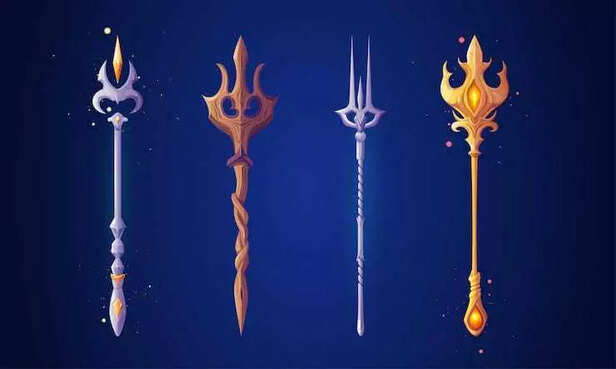
At the heart of the Mahabharat lies the concept of dharma, often translated as duty or righteousness. However, the epic never offers a singular definition of dharma. Instead, it presents dharma as situational, ever-changing, and deeply personal. For instance, Bhishma, the grandsire of the Kuru dynasty, remains loyal to the throne despite its corruption, bound by an oath that defines his entire life. His adherence to dharma as a vow ultimately contributes to the downfall of the very family he sought to protect.
Yudhishthira, hailed as the embodiment of righteousness, gambles away his kingdom, his brothers, and even his wife in a game of dice. He does so not out of greed, but from a misplaced sense of duty to the rules of the game and his role as a Kshatriya. His moral compass, though intact, leads him down a path that appears ethically indefensible. Yet, he is never painted as a villain—only as a man burdened by the weight of his own ideals.
Krishna: The God Who Bends Morality
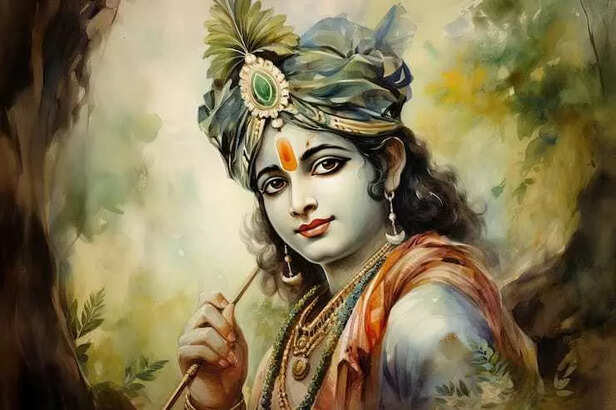
Perhaps no character embodies the moral complexity of the Mahabharat more than Krishna. Though considered a divine incarnation, Krishna’s actions are anything but traditionally virtuous. He encourages deception, manipulates events, and even advises Arjuna to kill his own kin without hesitation.
Krishna’s morality is utilitarian—he believes in achieving the greater good, even if it demands morally questionable means. In the war of Kurukshetra, he acts as a strategist, not a saint. His famous counsel to Arjuna in the Bhagavad Gita serves as the philosophical core of the Mahabharat, where he argues that duty, not emotion, should guide one’s actions. This pivotal conversation encapsulates the tension between personal conflict and cosmic purpose.
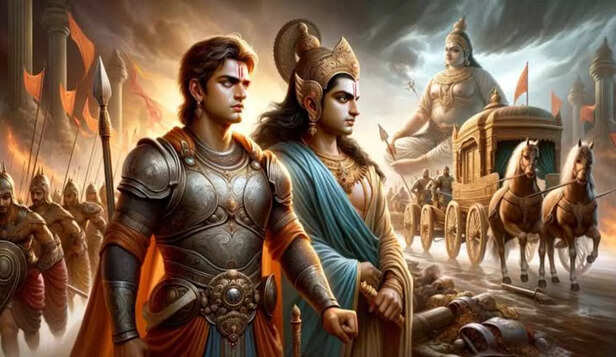
Karna is another figure whose life is a tapestry of ethical struggles. Born to a royal mother but raised by a charioteer’s family, Karna is denied his rightful status and ridiculed for his origins. His undying loyalty to Duryodhana, the main antagonist, stems not from shared ideology but from gratitude—a virtue that tragically chains him to the wrong side of history.
Despite knowing the truth about his birth and the righteousness of the Pandavas’ cause, Karna chooses loyalty over justice. His life illustrates the painful reality that morality is not always about choosing right over wrong—but about choosing between two rights, or sometimes, two wrongs.
Draupadi: The Voice of Resistance
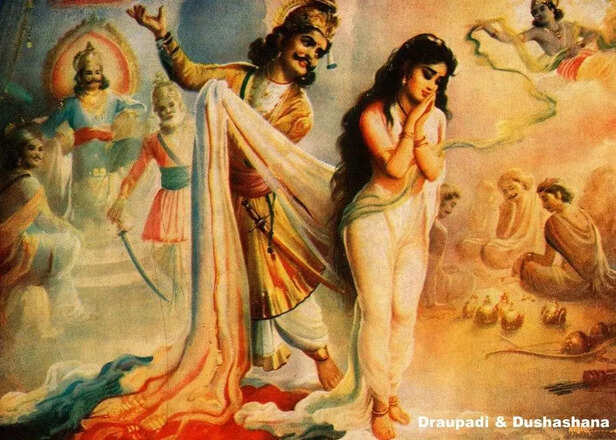
Amid a world dominated by men and bound by patriarchy, Draupadi emerges as a powerful voice of resistance. Her public humiliation in the court, where none of the elders intervene, exposes the hollowness of so-called righteousness. Her questions echo throughout the epic: Who is truly moral when morality becomes silent in the face of injustice?
Draupadi’s role in the Mahabharat is not passive; she becomes the catalyst for the great war. Her anguish becomes a symbol of honor lost and justice delayed. Through her, the epic questions the ethical standards of a society that claims to uphold dharma but fails to protect its women.
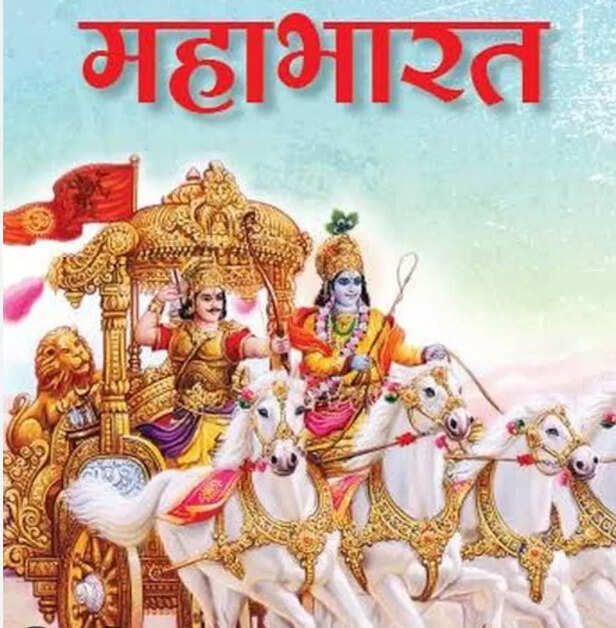
What makes the Mahabharat enduring is not its scale, but its soul. The dilemmas faced by its characters mirror the choices we grapple with today: career vs. family, personal ethics vs. societal norms, truth vs. loyalty. It teaches us that moral clarity is rare, and often, decisions must be made not between good and evil, but between competing virtues.
In an age where we seek absolute truths, the Mahabharat reminds us that life is not so simple. Righteousness can be flawed, heroes can make mistakes, and even the divine must bend rules to uphold justice. It encourages introspection rather than blind judgment, compassion over condemnation.
The Mahabharat is more than an ancient story—it is a philosophical journey into the heart of human ethics.In doing so, it becomes not just an epic of the past, but a moral guide for the present and future.
Unlock insightful tips and inspiration on personal growth, productivity, and well-being. Stay motivated and updated with the latest at My Life XP.
Unlike tales that divide the world into black and white, the Mahabharat lives in shades of grey. Each of its characters, from the noblest to the most condemned, exists within a complex web of conflicting duties, personal desires, and societal expectations. It is this very ambiguity that makes the Mahabharat a living, breathing guide to human morality, far beyond the boundaries of time and culture.
Dharma : A Double-Edged Sword

Dharma: A Double-Edged Sword
( Image credit : Freepik )
At the heart of the Mahabharat lies the concept of dharma, often translated as duty or righteousness. However, the epic never offers a singular definition of dharma. Instead, it presents dharma as situational, ever-changing, and deeply personal. For instance, Bhishma, the grandsire of the Kuru dynasty, remains loyal to the throne despite its corruption, bound by an oath that defines his entire life. His adherence to dharma as a vow ultimately contributes to the downfall of the very family he sought to protect.
Yudhishthira, hailed as the embodiment of righteousness, gambles away his kingdom, his brothers, and even his wife in a game of dice. He does so not out of greed, but from a misplaced sense of duty to the rules of the game and his role as a Kshatriya. His moral compass, though intact, leads him down a path that appears ethically indefensible. Yet, he is never painted as a villain—only as a man burdened by the weight of his own ideals.
Krishna: The God Who Bends Morality

Krishna: The God Who Bends Morality
( Image credit : Freepik )
Perhaps no character embodies the moral complexity of the Mahabharat more than Krishna. Though considered a divine incarnation, Krishna’s actions are anything but traditionally virtuous. He encourages deception, manipulates events, and even advises Arjuna to kill his own kin without hesitation.
Krishna’s morality is utilitarian—he believes in achieving the greater good, even if it demands morally questionable means. In the war of Kurukshetra, he acts as a strategist, not a saint. His famous counsel to Arjuna in the Bhagavad Gita serves as the philosophical core of the Mahabharat, where he argues that duty, not emotion, should guide one’s actions. This pivotal conversation encapsulates the tension between personal conflict and cosmic purpose.
Karna: The Tragedy of Loyalty

Karna: The Tragedy of Loyalty
Karna is another figure whose life is a tapestry of ethical struggles. Born to a royal mother but raised by a charioteer’s family, Karna is denied his rightful status and ridiculed for his origins. His undying loyalty to Duryodhana, the main antagonist, stems not from shared ideology but from gratitude—a virtue that tragically chains him to the wrong side of history.
Despite knowing the truth about his birth and the righteousness of the Pandavas’ cause, Karna chooses loyalty over justice. His life illustrates the painful reality that morality is not always about choosing right over wrong—but about choosing between two rights, or sometimes, two wrongs.
Draupadi: The Voice of Resistance

Draupadi: The Voice of Resistance
Amid a world dominated by men and bound by patriarchy, Draupadi emerges as a powerful voice of resistance. Her public humiliation in the court, where none of the elders intervene, exposes the hollowness of so-called righteousness. Her questions echo throughout the epic: Who is truly moral when morality becomes silent in the face of injustice?
Draupadi’s role in the Mahabharat is not passive; she becomes the catalyst for the great war. Her anguish becomes a symbol of honor lost and justice delayed. Through her, the epic questions the ethical standards of a society that claims to uphold dharma but fails to protect its women.
Relevance in the Modern World

Relevance in the Modern World
What makes the Mahabharat enduring is not its scale, but its soul. The dilemmas faced by its characters mirror the choices we grapple with today: career vs. family, personal ethics vs. societal norms, truth vs. loyalty. It teaches us that moral clarity is rare, and often, decisions must be made not between good and evil, but between competing virtues.
In an age where we seek absolute truths, the Mahabharat reminds us that life is not so simple. Righteousness can be flawed, heroes can make mistakes, and even the divine must bend rules to uphold justice. It encourages introspection rather than blind judgment, compassion over condemnation.
The Mahabharat is more than an ancient story—it is a philosophical journey into the heart of human ethics.In doing so, it becomes not just an epic of the past, but a moral guide for the present and future.
Unlock insightful tips and inspiration on personal growth, productivity, and well-being. Stay motivated and updated with the latest at My Life XP.
Frequently asked questions (FAQs)
- What moral lesson does the Mahabharata teach you? It teaches that righteousness (dharma) must guide all actions, even in complex situations.
- What is the moral message of the Mahabharata? The core message is the victory of truth and justice over greed, ego, and unrighteousness.
- Does Mahabharata teach morality? Yes, it deeply explores morality, showing the consequences of ethical and unethical choices.










